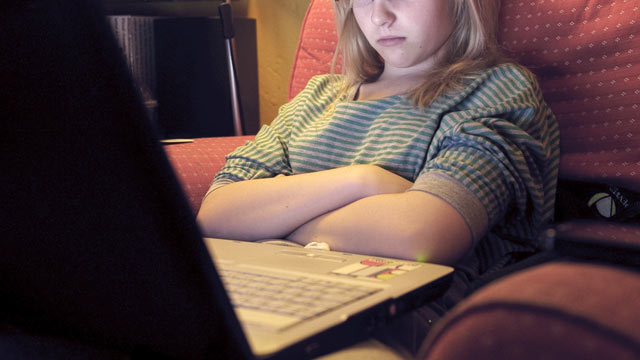Facebook: Friends' Happy Pictures Make You Sad?

ABC News' Matthew Rosenbaum and Ned Potter Report:
There are plenty of reasons to feel down in today's fast-paced, hectic world, and you wouldn't think that the world's most popular social networking site would be one of them. But that's exactly what a new study at Utah Valley University has found.
According to the study, Facebook is making us sad. Why? It's all about the kinds of pictures people to post on their pages.
Facebook photos generally depict smiling, cheerful people having good times, conveying a sense of happiness. Of course everyone likes to smile for the camera, so that good cheer may be inflated or false. As others view the photos, they may believe this conveyed sense of intense happiness is real, making them think that their friends are much happier than they are.
Sociologist Hui-Tzu Grace Chou said the study was inspired by her own experience: "Several years ago I started using Facebook because people invited me," she said in a telephone interview, "and I started to realize my friends on Facebook looked really happy. That made me curious."
Chou and Nicholas Edge interviewed 425 students, asking them whether they agreed or disagreed with such statements as "Many of my friends have a better life than me," and "Life is fair."
They also asked about the students' Facebook usage, including how many "friends" they had on the site, and how many of those friends were really people they knew.
After controlling for race, gender, religious beliefs and whether the volunteers were unattached or in a relationship, the researchers saw a pattern: The more time students spent on Facebook, the more they thought others had it better than they did.
"Those who have used Facebook longer agreed more that others were happier, and agreed less that life is fair, and those spending more time on Facebook each week agreed more that others were happier and had better lives," wrote Chou and Edge. "Furthermore, those that included more people whom they did not personally know as their Facebook "friends" agreed more that others had better lives."
The study, which was published in the journal Cyberpsychology, Behavior and Social Networking, also found that people who spent less time socializing with friends in cyberspace and more time socializing with them in real life were less likely to report they were unhappy.
"We're not aware of the bias we have," said Chou. "On Facebook we present ourselves at our best. People are affected and they don't realize it."
So if you are looking for a way to cheer yourself up, the researchers say you may do well to log off. Call your best friend instead.